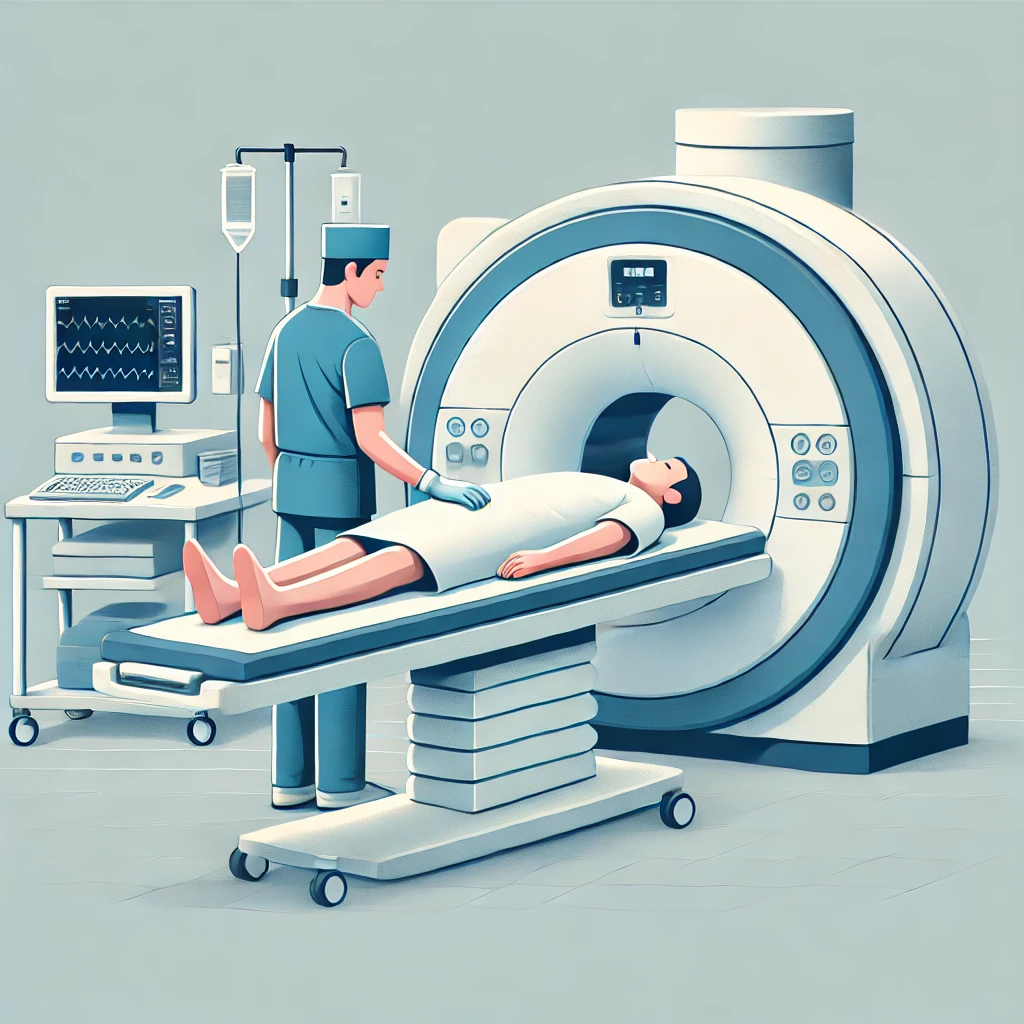Are you ready to maximize your Radiologic Technician salary negotiation skills and secure a higher-paying job in healthcare? As a Radiologic Technician (Rad Tech), your role is critical in the healthcare system, providing diagnostic imaging services that help doctors treat patients effectively. However, despite the increasing demand for these services, many Rad Techs are unaware of the steps they can take to increase their earning potential. Whether you’re just starting or mid-career, understanding how to negotiate a better salary and seek high-paying opportunities can make a significant difference.
This article offers a comprehensive guide on how to boost your Radiologic Technician salary, including tips on salary benchmarks, negotiation strategies, and identifying high-paying positions in the healthcare industry.

Why Radiologic Technicians Are in High Demand
Radiologic Technicians are crucial to healthcare, providing vital imaging services in hospitals, clinics, and diagnostic centers. The demand for Rad Techs has surged due to the growing need for medical imaging to diagnose conditions such as cancers, broken bones, and cardiovascular diseases.
Factors Driving Demand:
- Aging Population: As the elderly population grows, more diagnostic imaging is required for age-related conditions.
- Advancements in Imaging Technology: New technologies such as 3D mammography and advanced MRI machines increase the need for skilled Rad Techs.
- Increased Healthcare Access: Expanded healthcare coverage leads to higher patient volumes, boosting demand for imaging services.
While demand is high, maximizing your salary potential requires strategic effort. Let’s explore how to position yourself for the highest-paying Radiologic Technician jobs.

Key Factors That Influence a Radiologic Technician’s Salary
Several factors contribute to how much you can earn as a Radiologic Technician. Understanding these can help you identify areas to improve your earning potential.
1. Understanding How Location Affects Radiologic Technician Salary Negotiation
- High-Paying States: Some states like California, Massachusetts, and Alaska offer significantly higher wages due to higher living costs and demand for specialized healthcare services.
- Urban vs. Rural: Typically, urban areas pay more due to the concentration of healthcare facilities. However, some rural areas may offer bonuses for staffing shortages (Learn how locum tenens roles offer healthcare professionals flexibility and higher earning potential).
2. Experience Level
- Entry-Level vs. Mid-Career: As with most professions, more experience usually results in higher pay. Mid-career professionals typically command higher salaries, especially if they have specialized skills.
- Certifications and Specializations: Rad Techs who pursue additional certifications in MRI, CT, or mammography often earn higher wages due to their specialized skills.
3. Workplace Setting
- Hospitals vs. Diagnostic Centers: Hospitals may offer different compensation packages than outpatient imaging centers. In many cases, specialized facilities or private practices may pay more.
- Overtime and Shift Differentials: Working night shifts or being on-call can significantly increase your earnings due to shift differentials and overtime pay.

How to Increase Your Radiologic Technician Salary
If you’re looking to increase your Radiologic Technician salary, there are several strategies you can employ to maximize your earning potential.
1. Certifications and Specializations That Impact Radiologic Technician Salary Negotiation
The more skills you bring to the table, the more valuable you are to employers. Pursuing certifications in specialized imaging areas like MRI, CT, or cardiovascular imaging can make you stand out and boost your salary.
Popular Certifications:
- Computed Tomography (CT)
- Magnetic Resonance Imaging (MRI)
- Mammography
- Cardiovascular-Interventional Radiography
2. Consider Relocation
Some states offer significantly higher wages for Radiologic Technicians. If you’re flexible and willing to move, you can increase your salary by working in high-demand areas like California or New York.
3. Leverage Your Experience
If you’ve worked as a Radiologic Technician for several years, don’t hesitate to leverage your experience when negotiating your salary. Highlight your expertise in specialized imaging techniques and your ability to work in high-pressure environments.
4. Network and Stay Informed
Networking within your industry and staying updated on salary benchmarks in your area can give you an edge when negotiating. Utilize resources like the American Society of Radiologic Technologists (ASRT) for salary reports and industry trends.

Salary Negotiation Tips for Radiologic Technicians
Salary negotiation is often an intimidating prospect, but it’s a necessary step toward ensuring you’re paid fairly for your skills and experience. Here are a few tips to guide you through the process:
1. Do Your Research
Before entering any salary negotiation, know the industry standard for your experience level and location. Use salary data from sources like the Bureau of Labor Statistics or ASRT to gauge what you should be earning.
2. Emphasize Your Value
Highlight your qualifications, certifications, and experience that bring value to the employer. If you’ve completed recent training or have specialized skills, mention those.
3. Be Strategic About Timing
Timing is critical when negotiating a salary increase. Typically, the best time to discuss a raise is during performance reviews, after completing a big project or earning a certification.
4. Be Open to Other Benefits
If your employer cannot meet your salary request, consider negotiating for other benefits like additional paid time off, flexible scheduling, or professional development opportunities.
Looking to increase your earning potential in healthcare? Discover comprehensive salary negotiation strategies tailored to healthcare professionals.
The Highest-Paying Radiologic Technician Jobs
Certain Radiologic Technician jobs and industries offer higher pay compared to others. Here’s where you should focus your job search to maximize your earnings.
1. Specialized Imaging Roles
Specializing in high-demand imaging techniques like MRI or interventional radiography can significantly boost your earnings.
2. Private Practices and Diagnostic Centers
While hospitals may provide stability, private practices, and diagnostic centers often offer higher salaries to attract experienced professionals.
3. Travel Radiologic Technicians
Working as a travel Rad Tech can be highly lucrative if you’re open to travel. Travel assignments typically offer higher pay and additional benefits like housing stipends.
Factors Influencing Radiologic Technician Salary
| Factor | Impact on Salary |
|---|---|
| Location | High-paying states (e.g., California, Alaska) offer higher wages. |
| Experience Level | More experience, especially in specialized imaging, leads to higher pay. |
| Certifications & Specializations | Additional certifications (MRI, CT, Mammography) boost salary. |
| Workplace Setting | Hospitals vs. diagnostic centers, with private practices offering competitive pay. |
| Overtime & Shift Differentials | Extra pay for night shifts or on-call rotations. |
Conclusion: Mastering Radiologic Technician Salary Negotiation for Higher Earnings
Increasing your Radiologic Technician salary requires a proactive approach. Whether through certifications, relocation, or salary negotiations, plenty of strategies exist to maximize your earnings. By understanding the factors that influence your salary and leveraging your skills, you can position yourself for high-paying opportunities in the field.
FAQ About Radiologic Technician Salary Negotiation
1. How much do Radiologic Technicians make on average?
The average salary for Radiologic Technicians is around $63,710 per year, but this can vary depending on location, experience, and specialization.
2. What is the highest-paying state for Radiologic Technicians?
California is currently the highest-paying state, with salaries averaging over $86,000 annually.
3. How can I specialize as a Radiologic Technician?
To specialize, you can pursue certifications in MRI, CT, or mammography offered through organizations like ARRT (American Registry of Radiologic Technologists).
4. Is overtime pay common for Radiologic Technicians?
Yes, many Radiologic Technicians earn extra income through overtime or shift differentials, especially those working night shifts or on-call rotations.
5. Can I work as a travel Radiologic Technician?
Many agencies hire travel Radiologic Technicians for temporary assignments, often with higher pay and additional benefits like housing allowances.







